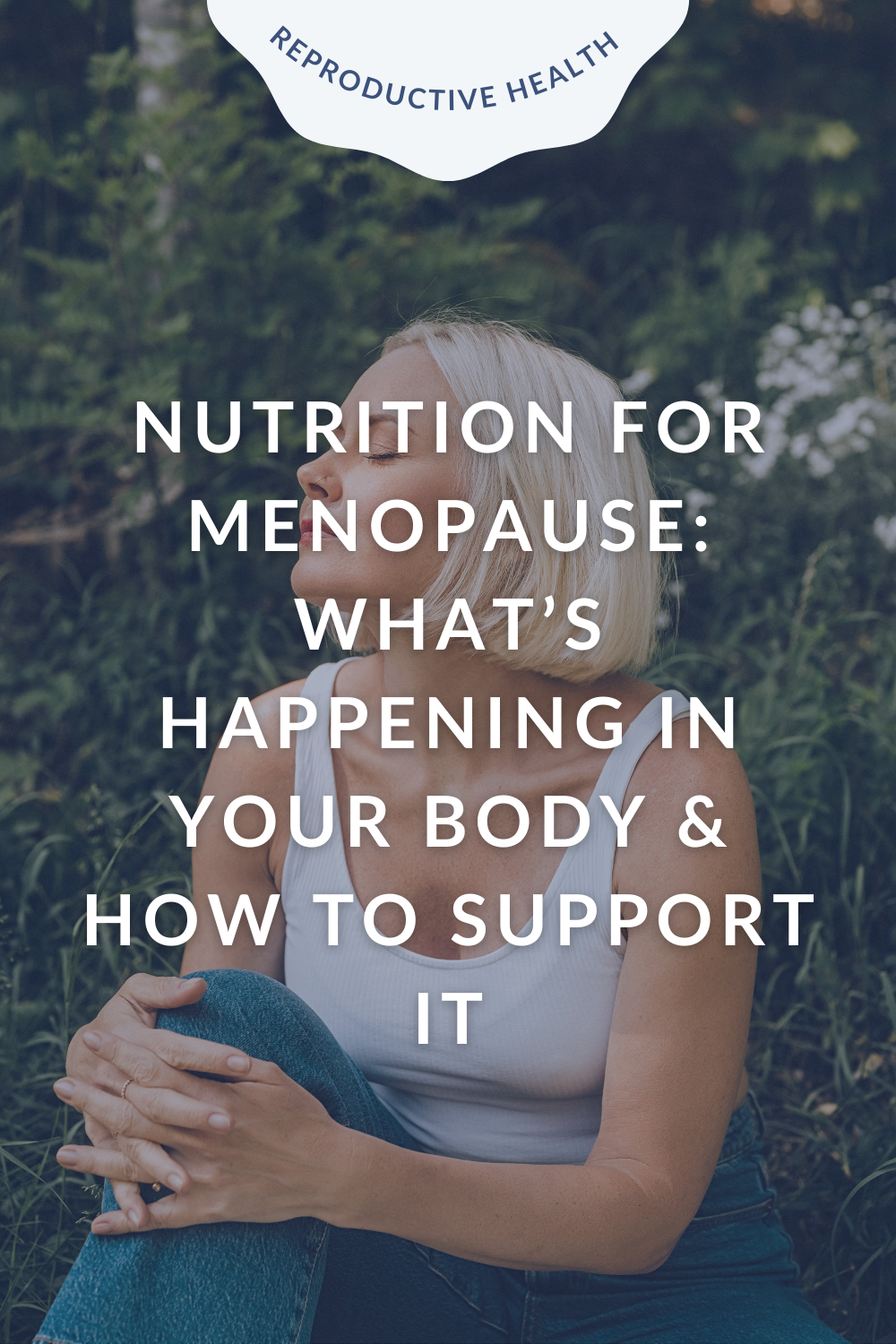How to Build Balanced Meals for Balanced Hormones
It’s 2024, and hormone health is a HOT topic💫
What are hormones, anyway? Is it just a buzzword? An umbrella term?
Today, we’ll dive into hormone health, PCOS and provide practical tips on building healthy meals for healthy hormones.
What are hormones?
Our hormones are part of the endocrine system. This system makes and circulates hormones that helps us perform various daily functions - ranging from growth and development, to reproductive health, sexual function, to metabolism, mood and sleep.
Clearly, hormones are essential to life and wellbeing.
People with ovaries experience hormone shifts in many stages of life, including puberty and menarche (first period), menstruation (more periods), pregnancy, childbirth, breastfeeding, peri-menopause, menopause and post-menopause.
For 6-10% of those in reproductive age, Polycystic Ovary Syndrome exists, and is only recently gaining traction in nutrition and lifestyle therapy.
PCOS comes with many daily challenges (think mood swings, cravings, acne, facial hair growth, and can increase risk for chronic diseases such as Type 2 diabetes and heart disease.
How is PCOS and hormones related? The hormones insulin, testosterone, DHEA-S and cortisol are often elevated in bodies with PCOS. However, keep in mind that this is not the case for everyone - it truly is unique in each body, so things can get a bit tricky.
PCOS and Hormones Insulin, Testosterone and Cortisol
PCOS and Insulin
People with PCOS often have higher insulin levels due to insulin resistance. Insulin is a hormone that helps our bodies convert sugar from food to energy/fuel.
Naturally, after a meal, we have higher blood sugar levels. So, our pancreas releases insulin to reduce bloods sugar levels.
When our bodies become resistant to insulin’s mechanism, it has a harder time getting blood sugar into your cells. As a result, your pancreas pumps more insulin to help. If this cycle continues, more sugar remains in your bloodstream along with high insulin levels over a prolonged period of time, increasing risk for metabolic disorders.
Therefore, it is important to intervene early on by stabilizing your insulin levels, if insulin resistance is something you struggle with.
PCOS and Testosterone
Since insulin resistance is a growth hormone, it can trigger the ovaries to produce more testosterone than what is needed and impair ovulation. Excess testosterone can also be caused by increased luteinizing hormone stimulation from the pituitary gland. Excess levels of this hormone can cause symptoms such as facial hair growth, acne and frontal balding. Stabilizing insulin levels can help with this, along with medical management.
PCOS and Cortisol
If you’re living with PCOS, you may be stressed, to say the least. Some lower-quality studies suggest cortisol levels, which is the body’s main stress hormone, is dysregulated in PCOS. However, research in this area is very sparse and questionable.
What I will say, is that living with the daily challenges of PCOS can be incredibly stressful and disheartening.
For more insight into your hormones, download a free PCOS Labs Checklist.
Back to Basics: What’s a Balanced Meal for Balanced Hormones?
A balanced meal is one that consists of 3 macronutrients:
Carbohydrates
Protein
Fats
Using this framework will naturally provide you with essential nutrients to for daily functioning, and will help regulate your blood sugar and support energy levels!
Carbohydrates
Carbs have got a bad reputation. At their root, carbs are made up of molecules of sugar called monosaccharides. So, when carbs are digested, they are broken down into sugar molecules - makes sense. These sugar molecules then travel into the blood, increasing blood sugar levels and thus insulin.
I can see why that might be frightening. We often hear about the detrimental affects of sugar and insulin levels on our health. But here’s the thing, the balance and quality of our overall dietary pattern matter much, much more. Also, sugar provides us energy. In fact, our brain is the most energy demanding organ, using about 20% of the energy we get from sugar. We need sugar from carbs to function optimally and feel our best!
However, it can be helpful to incorporate more slower-digesting carbs. When we eat mostly refined carbs, the food gets broken down quickly and can cause a quicker spike in blood sugar levels. On the other hand, slower-digesting carbs like parboiled rice, soba noodles, legumes, steel cut oats, fruits and veggies create a much lower and lower blood sugar response.
Regardless, following the meal framework provides fats and proteins to further stabilize the blood sugar - thus, the overall balance of meal matters more than the type of carb you eat.
Protein
Protein is a very important macronutrient for growth and repair, and plays an important role in producing hormones, like insulin. It also increases our blood sugar levels, but to a smaller effect than carbs, since it takes linger to digest. Thus, slower blood sugar absorption = slower release of insulin.
Protein can be found in both animal and plant sources. There has been much debate about which protein sources are “better.” Both have merits, and once again, the context of an overall balanced and varied diet matter more. Plus, ethical and environmental concerns impact our decision making with protein sources.
What’s most important is that you eat to your preferences, and find variety within that! With that being said, it may be helpful for PCOS management to include more soy proteins, found in tofu, tempeh, edamame, soy milk, soy beans, and soy-based protein powder. Studies suggest that those with PCOS who eat more soy may experience lower fasting insulin and insulin resistance, lower fasting sugars, who enjoyed diets high in soy experienced lower circulating insulin, fasting blood sugars, triglycerides and free androgens. They cite isoflavones, which is a polyphenol with anti-inflammatory and anti-oxidant functions, as the main benefit.
Fats
Fats take the longest to digest, and have minimal effect on your blood sugars and insulin.
Omega-3 fatty acids, specifically, have been shown to be beneficial in PCOS management, through many pathways. It helps with insulin stabilization, has anti-inflammatory benefits, is heart-healthy, and early studies suggest it may even be a treatment for mood disorders (which those with PCOS have an increased risk for developing).
Omega-3 fats are found in foods like fatty fish (tuna, salmon, trout, sardines), chia seeds, ground flax seeds, avocado, walnuts and olive oil. Try to incorporate a source of omega-3 fat daily because these fats are really o-MEGA powerful!
Building a Balanced PCOS Meal
Eating balanced meals consisting of carbs, protein and healthy fats is a great way for stabilizing hormone levels and managing many PCOS symptoms. Follow these steps to build a balanced PCOS plate, but remember, you can fit many of your favourite foods into a balanced meal. Don’t view these steps as restrictive rules, but rather, a framework (or a checklist, if you will).
Non-starchy veggies. Fill 50% of your meal with veggies like bok choy, okra, Swiss chard, spinach, tomatoes, eggplant, mushrooms, peppers, and more.
Carbs (choose slower-digesting more often). Fill 25% of your meal with legumes, grains and starchy vegetables.
Protein. Fill 25% of your meal with eggs, fish, poultry, soy protein, dairy.
Healthy fats. A great way is to cook with olive oil! You can also add a handful of nuts/seeds to meals.
Examples of Balanced Meals for Balanced Hormones
Chickpea and corn salad with tons of vegetables and hard-boiled eggs.
Chicken tacos topped with vegetables on corn tortilla, plus side of coleslaw
Purple rice bowl with sauteed shrimp, edamame, eggplant and bokchoy
So there you have it, an easy 3-step framework on how to build balanced meals for balanced hormones. Keep in mind, this is for educational purposes only, and may not cover all your unique nutritional needs.
Enjoy!
Hi! I’m Trista
A Registered Dietitian and reproductive health expert. I’m here to help you gain confidence to overcome your Polycystic Ovary Syndrome and digestive health woes, while bettering your relationship with food.
CATEGORIES
Want to balance those hormones and live symptom-free?
Work with me in my 1-on-1 Nutrition Coaching Programs to receive personalized nutrition guidance, personalized meal plans and unlimited messaging support to create lasting change.
Thrive with community? Join our PCOS Recovery Program, and gain a step-by-step program with a network of support to help you break free from the PCOS pain.
References
https://pubmed.ncbi.nlm.nih.gov/29468748/
https://www.ncbi.nlm.nih.gov/pmc/articles/PMC5870911/
https://www.ncbi.nlm.nih.gov/pmc/articles/PMC6489978/
https://onlinelibrary.wiley.com/doi/abs/10.1111/jhn.12545
https://academic.oup.com/jcem/article/101/9/3386/2806671?login=false




















